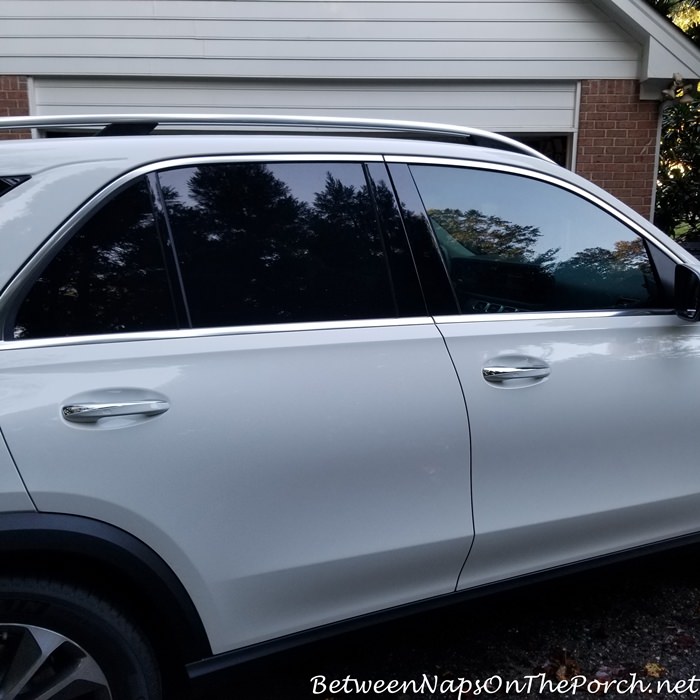Window Tinting Rules: What You Need to Know Before Tinting Your Car
Comprehending window tinting laws is essential for any kind of vehicle proprietor taking into consideration tinting their vehicle. As you contemplate enhancing your automobile's appearance and functionality, it is vital to comprehend not just the lawful ramifications yet additionally the functional considerations that come with selecting the best color.
Significance of Understanding Tint Laws
Understanding home window tinting laws is vital for automobile proprietors to ensure conformity with state policies. These regulations determine the acceptable degrees of tint darkness and reflectivity, which can considerably differ from one territory to another. Falling short to stick to these regulations can result in fines, necessary elimination of the color, and potential issues during automobile evaluations.
In addition, recognizing these legislations assists lorry proprietors make educated decisions concerning their tinting choices. Various types of window films give various advantages, such as UV defense, heat being rejected, and glare decrease. However, without expertise of the lawful limits, lorry owners take the chance of picking items that might ultimately cause legal issues.
Additionally, recognition of tinting legislations fosters a much safer driving setting. window tinting. Excessively dark colors can harm visibility, increasing the threat of accidents, especially at evening or in damaging weather. Legislation enforcement agencies likewise use these regulations to guarantee road security, making conformity not simply a legal commitment yet an individual obligation
State-Specific Tint Rules
Each state in the U.S. has actually established its own certain laws concerning home window tinting, showing a varied range of requirements and needs. These regulations can differ substantially, impacting exactly how automobile proprietors come close to installation and compliance. For circumstances, some states allow darker colors on back windows while imposing strict limitations on front-side windows.
Furthermore, policies typically define allowed color products and shades. Specific states prohibit reflective colors completely, while others might permit them to a limited degree. Some territories mandate that cars with colored home windows present a sticker label showing compliance with state regulations, providing a clear identification for law enforcement.
Enforcement of these regulations additionally differs; some states are a lot more proactive, conducting arbitrary checks, while others rely upon complaints or noticeable infractions to initiate enforcement. Car proprietors should know that failing to abide by state-specific tint regulations can cause penalties, compulsory removal of prohibited colors, or both.

Lawful Tint Percentages
Establishing the legal tint percents is crucial for automobile proprietors looking for to abide with state laws. Each state has details laws regulating just how much light has to go through the windows of a lorry, which is expressed as a percent understood as Noticeable Light Transmission (VLT) This portion differs dramatically throughout states and can depend upon the sort of home window-- front side, back side, and windshield.
For example, some states permit as low as 20% VLT on front side home windows, while others might permit approximately 50%. Windscreen tinting is often a lot more limited, with several territories enabling just a narrow band of color on top of the windscreen. On the other hand, rear windows typically have much more lenient guidelines, with some states allowing darker colors.
It is crucial for car proprietors to familiarize themselves with their local regulations to avoid prospective legal problems. This includes understanding exactly how VLT is measured, as it can vary based on the kind of window movie utilized. Remaining informed regarding these regulations ensures conformity and advertises safe driving problems for both the car owner and others when driving.
Effects of Non-Compliance
Failing to adhere to home window tinting laws can lead to substantial repercussions for lorry owners. Officers educated to determine unlawful color degrees might issue fines, which can vary by territory but frequently vary from modest to considerable amounts.

Insurance policy business might also impose penalties for non-compliance, as prohibited modifications can be considered as a breach of policy terms. If an occurrence happens., this can affect coverage prices or lead to issues in insurance claims.
Inevitably, the consequences of non-compliance expand beyond prompt punitive damages; they can influence a driver's insurance policy rates, lawful standing, and general lorry worth, emphasizing the value of sticking to regional window tinting laws.
Tips for Picking Tinting Options
Comprehending the effects of non-compliance highlights the importance of making notified this post options when selecting home window tinting options. Acquaint yourself with your state's certain laws pertaining to tint darkness and reflectivity. Each state has special policies that determine the acceptable restrictions, so ensure you stay within these standards to avoid fines.
Secondly, take into consideration the kind of color material. Alternatives consist of colored, metalized, and ceramic colors, each offering differing levels of warm denial, UV protection, and durability. Ceramic tints offer premium heat resistance without interfering with digital tools, making them a preferred option.
In addition, evaluate your main objective for tinting. If you look for enhanced privacy, opt you could try this out for darker tints; nevertheless, remember that this might affect visibility at night. Alternatively, if glare reduction and UV security are your major problems, lighter tints might be sufficient.
Last but not least, speak with a professional installer that is well-informed regarding regional regulations and can suggest high-quality materials suited to your needs (window tinting). Taking these factors right into account will certainly ensure you make a knowledgeable decision, ultimately enhancing both your car's appearances and capability
Conclusion
To conclude, familiarity with window tinting laws is essential prior to applying color to a lorry. Each state applies details laws relating to noticeable light transmission portions, particularly for front-side home windows and windscreens. Non-compliance can cause substantial charges, including fines and necessary elimination of non-conforming tint. By understanding lawful needs and choosing suitable color products, automobile owners can attain visual enhancement while continuing to be certified with relevant legislations. Adherence to these guidelines ensures both safety and security and fulfillment.
Understanding window tinting laws is necessary for any kind of car proprietor taking into consideration tinting their vehicle.Recognizing home window tinting laws is vital for vehicle owners to make sure conformity with state laws. Some states allow darker colors on back home windows while enforcing strict limits on front-side windows.
In comparison, back home windows generally have a lot more tolerant regulations, with some states permitting darker tints. (window tinting)
In conclusion, experience with home window tinting laws read what he said is crucial prior to using color to a vehicle.
Comments on “Professional Window Tinting Services for Better Comfort and Style in Your Vehicle”